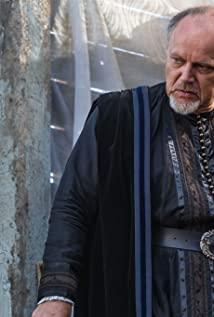With the popularity of "Dunkirk", many strange voices appeared on the Internet. For example, "Wolf Warriors 2" praised victory, while "Dunkirk" praised failure. This is not in line with Chinese values, and For example, it is believed that the British general Harold Alexander, who commanded the retreat of Dunkirk, single-handedly directed the defeat of the Chinese Expeditionary Force in Burma, and was the chief culprit for the death of General Dai Anlan in Savage Mountain. Even more people with ulterior motives used these rumors to boycott the anti-fascist movie "Dunkirk". Seeing these remarks, I couldn't help but sigh: How far is it to reverse the black and white before I dare to create such rumors!
Speaking of retreat, in fact, we also have something comparable to the Dunkirk retreat: the Long March of the Red Army. Regarding the Long March, there are a lot of historical materials, so I won't say much. I am afraid that no one will know and no one dare to deny the strategic significance of the Long March, right? So, how can Dunkirk not be praised for a strategic retreat that is also intended to preserve vitality? What is the sinister intention of these people to deny Dunkirk? Are they denying the Long March by denying Dunkirk? It is recommended that the relevant departments must strictly investigate such remarks and uncover the black hands behind them.
Regarding the claim that the British directed the tragedy of the Chinese Expeditionary Force alone, this matter must be viewed in the historical context of the time. What was the international environment at that time? Germany and Japan are advancing vigorously, the United States and the Soviet Union are watching the fire across the shore. France, known as an army power, has repaired the Maginot Line for more than ten years. The strategic intention of the retreat is very obvious: to preserve the vitality of the British, in order to fight again in the future. This is not only responsible for Britain, but also for the anti-fascist front around the world.
As for the British abandoning their French allies, first of all, I think we, as Chinese, should not use some responsible history that we are not clear about ourselves to resist. If we must resist, then we must first understand the point. : Why does the cowardly and despicable Britain have 300,000 people in France?
Check Baidu Encyclopedia to know that in both world wars, the British sent expeditionary forces to France to resist the Germans. At the end of the First World War, Britain even had 1.5 million troops on the European battlefield, participating in almost all the battles ( The battle of Can) Ming (Cool) played a huge role in the victory of the war. In World War II, the British once again sent hundreds of thousands of expeditionary troops before Germany attacked France, and they withdrew from Dunkirk to their homeland after all the heavy equipment was lost, but half a month later , The British once again sent 3 divisions back to France to fight!
These are just to show that the British do not have the courage and despicableness of man-made rumors with ulterior motives. After all, the glory of the empire that never sets for hundreds of years may be incomprehensible to masochistic paranoiars who think they have been bullied for hundreds of years.
Okay, let’s talk about the tragedy of Harold Alexander and the Chinese Expeditionary Force. First of all, we must explain the historical environment at that time: Burma is far less important to the British than India, but to China, Burma is extremely important. This has caused a huge difference in the strategic intentions of the two armies. On this basis, the so-called behavior of the British pitting teammates does exist, but it is not out of control, nor can it be used as an excuse to cause General Dai Anlan’s sacrifice. If you must find a backer, it should also be an order. Chiang Kai-shek—Look at Sun Liren. Even if he fell out with Chiang Kai-shek, he would also go to India with the British. Later he became a legend.
The failure of the Chinese Expeditionary Force’s first attack on Burma is even more complicated if it is placed in the specific historical circumstances at the time: the rampant relations between Germany and Japan, the delicate relationship between Chiang Kai-shek and Stilwell, and even the local Burmese people in Japan. Under the enchantment of people, the initial hostility towards the Chinese and British troops, etc. After comprehensively reviewing these situations, you will know that the situation at that time was far from the simple fact that the British had deliberately cheated the Chinese expeditionary army as claimed by people with ulterior motives.
So what is the intention of these people with ulterior motives? Why did they go against the tradition of suppressing the expeditionary army and suddenly speak for the expeditionary army in an atmosphere where there is not even a movie reflecting the expeditionary army in the country?
Speaking of Dunkirk, coupled with the fact that I was studying in Yichang, I have to talk about the Yichang Great Retreat that took place in China known as the "Eastern Dunkirk Great Retreat". The name of the person who organized this retreat was Lu Zuofu. About this person, Baidu Baike introduced: Lu Zuofu (1893-1952), a native of Hechuan, Chongqing; a famous patriotic industrialist, educator, social activist, and pioneer of rural social work in China ; Minsheng Company, founded in 1925, is one of the largest and most influential private enterprise groups in modern China. In the early years of the founding of the People’s Republic of China, Mao Zedong once said to Huang Yanpei: In modern Chinese history, there are 4 people we must not forget. They are: Zhang Zhidong who is engaged in heavy industry; Zhang Jian who is engaged in textile industry; Lu Zuofu is engaged in transportation industry; Fan Xudong who is engaged in the chemical industry.
In the autumn of 1938, Wuhan fell. A large number of people who had retreated from Chongqing and nearly 100,000 tons of supplies from the Qianchuan factory were unable to be transported away from Yichang, and they were continuously bombed by Japanese planes. Lu Zuofu concentrated all the ships and most of the business personnel, and used segmented transportation, day and night, rushing the transportation day and night, regardless of the indiscriminate bombing by the Japanese planes, after 40 days of fighting, finally before the fall of Yichang, all the gathered personnel and materials were rushed to arrive. Sichuan.
The rush to move this time attracted attention at home and abroad, and was hailed as China's "Dunkirk".
The "Dunkirk Retreat" relied on the power of the country and was completed under the command of the military department. The Yichang retreat was completely dependent on Lu Zuofu and his Minsheng company fleet. In the history of Sino-foreign wars, such a retreat is only one example.
The Yichang retreat is extremely difficult. First, the Yangtze River Beach was flooded with rapid water, which was not conducive to the passage of ships. At that time, the dry period in the upper reaches of the Yangtze River was only 40 days, and time was tight. Second, the carrying capacity of ships was too small. The largest ship can only carry more than 600 tons at a time, and the largest passenger ship can only carry more than 200 people. As the largest shipping company at that time, Minsheng Company had a normal shipping volume of only 6,000 tons a month.
But after 40 days, all the personnel and two-thirds of the materials were successfully transported to Chongqing, including the 22nd, 23rd, 24th, 25th factories of the Ordnance Department, Jinling Arsenal, Shenyang Steel, Daxin Iron and Steel Factory, Wuhan spinning mills, as well as national government agencies, scientific research units, schools, precious historical relics, and other units, there are dozens of schools such as Fudan University, Central University, and the Central Army School.
You know, it was 1938, three years before the Japanese attack on Pearl Harbor and the United States declared war on Japan. Without these materials and personnel, it is difficult to say whether the National Government can survive these three years.
The strategic significance of the Yichang Retreat is self-evident.
In fact, the big retreat that took place in Yichang was two years earlier than Dunkirk, so theoretically speaking, the big retreat in Yichang should be the Yichang big retreat on the European battlefield.
If this is the case, then the small town where I have stayed for ten years will not be famous until the Three Gorges Dam.
But in fact, when I went to school in Yichang for ten years, I have never heard anyone mention it or read any text related to this great retreat. On the streets of Yichang, there were no memorials to commemorate this great retreat.
Perhaps, the miracle in the history of this war was destined to be erased with Lu Zuofu's death in 1952 after taking sleeping pills during the climax of the "Five Evils" movement.
Seeing this, some people may think that the logic does not make sense: Since the materials can be transported from Yichang to Chongqing, why didn't the Japanese fight to Chongqing along the waterway?
This is about the Shipai defense battle that took place in Yichang. Or Baidu Encyclopedia: The Shipai Defense Battle is a famous battle in which the Chinese army defeated the Japanese army by a weak force, and finally won a greater victory at a relatively small price. The Shipai Defense War was of extremely great significance. It was a major military turning point in the War of Resistance. Western militants hailed it as the "Defense War of Stalingrad in the East." It thwarted the daydream of Japanese troops marching westward through the Gorge, shattered the deployment of the Japanese troops to attack Chongqing, and contained the wanton trampling of the Japanese troops. The Shipai Defense War had a profound impact on the final outcome of China's Anti-Japanese War.
In October 1938, the Japanese army invaded and occupied Wuhan, and the central government was forced to move the capital to Chongqing. The steep Three Gorges of the Yangtze River became a natural barrier to the capital. The Shipai in the Xiling Gorge of the Yangtze River is named after a token-like boulder in the Elephant Trunk Mountain of the south of the Yangtze River. It is 40 meters high, 12 meters wide at the top, 4 meters thick, and weighs more than 4,300 tons. The Yangtze River suddenly turned 110 degrees right here, forming a natural battlefield and a battleground for military strategists in all generations. It stands on the tip of the sharp bend of the Yangtze River, about 20 kilometers away from the east entrance of Xiling Gorge, and all ships have to turn at the foot of Shipai. Precisely because of this bend and the cliffs standing on both sides of the bank, it has been a natural danger to guard the Yangtze River since ancient times.
Shipaixia is only more than 30 miles away from Yichang City. Since the Japanese invaded and occupied Yichang, Shipai has become the first gateway to Chongqing, the capital of the arch guard. Since ancient times, vehicles cannot pass from Hubei to Sichuan. When I was a child, I used to go to Sichuan by boat. It was not fixed until 2010). Under this premise, attacking Chongqing must open up the Yangtze River, and open up the Yangtze River must occupy Shipai.
The Shipai Defence War began in March 1939 with the establishment of the Jiangfang Army and ended in June 1943 when the Shipai decisive battle was won. It lasted 4 years and went through three long stages of war defense, decisive battle and stalemate. There were no less than a hundred battles in between. The battle line spread to the entire Yichang area of western Hubei. Especially during the decisive battle from May 5 to June 18, 1943, the Chinese army was commanded by the commander of the Sixth Theater Commander Chen Cheng, and the 11th Division under Hu Lian as the commander was the main battlefield and the Japanese 11th Army Commander Yokoyama Yong led the Japanese army. The 3rd, 13th, and 39th Divisions launched a desperate battle.
From the war to June 2, the Chinese army counterattacked across the board, and the Japanese army was defeated and retreated steadily, and achieved a complete victory in the main battlefield of the Shipai defense battle marked by the "Taishi Bridge Victory".
The tragic details of the Shipai defense battle abound, the most shocking of which may be the largest hand-to-hand battle in World War II. According to the memories of veterans who had participated in the war, there were no gunshots for 3 hours on the small and large Gaojialing Mountains near Caojiafan. This was not a truce, but a hand-to-hand battle between the enemy and our army. "The Japanese rushed up in groups, and the Chinese rushed forward, stirred them together, and fought them with bayonets."
Just imagine this scene written in history, enough to make people cry.
Then, China won, then the Japanese retreated, and then Chongqing kept it.
By the way, let's talk about Hu Lian. This Kuomintang general, who is relatively unpopular in our minds, is a man who has changed the destiny of China twice. One was the Battle of Shipai, and the other was the Battle of Kinmen. Therefore, he is called "King of Golden Gate".
Perhaps it is for this reason that the traces of his existence in domestic historical materials have been erased for a long time.
Because of the beautiful scenery in Shipai, as a native of Yichang, we have to visit it every two years. But I never knew that there had been such a significant defense battle in history. Like the Yichang Great Retreat, Shipai did not have any memorials showing the existence of this defense war. In Yichang, there is a Jiefang Road, which commemorates the Communist Party’s liberation of Yichang during the Civil War. There is a Dongshan Park on Dongshan with a monument to revolutionary martyrs, but the memorial period is 1949. Every Qingming Festival, we elementary school students will go to the monument to the martyrs. I remember that one year because the weather was too hot, some students fell down due to heatstroke.
Many years later, there was a monument to Zhang Zizhong in the Martyrs Cemetery, but there is still no mention of the Shipai defense battle and Hu Lian.
Many years later, I had left Yichang, only to know the Yichang Retreat and Shipai defense battle. When I looked through the shocking information, I almost fainted.
If you want to subdue your country, you must first destroy its history.
When certain people need to demonize the Kuomintang and spread lies that it does not resist Japan, they must cover up this history. But when they need to de-uglize and resist the so-called Western values (though until now I don’t understand the difference between Western values and Eastern values), they use the history they have tried to cover up and ugly, and then cover up another paragraph. history.
This is what they shamelessly used the Chinese Expeditionary Forces that they had deliberately forgotten to suppress Dunkirk.
I think this is not only a challenge to the IQ of normal people, but also a challenge to the most basic human nature.
Fortunately, in recent years, there have been more and more information about the Yichang Great Retreat and Shipai Defence Battle. It is said that there are also memorial halls to commemorate these two events in both downtown Yichang and Shipai. Chen Cheng’s son Chen Lv’an also went to the former site of Shipai Battlefield. By the way, this makes me very gratified. Although they have been deliberately covered up all year round, and even though there are still people desperately trying to discredit the miracles China created in World War II, history will eventually prove that it will return to its normal track and paper cannot contain fire. I hope that, sooner or later, we can also film our own "Yichang Retreat" and "Shipai Defense".
View more about Dunkirk reviews











